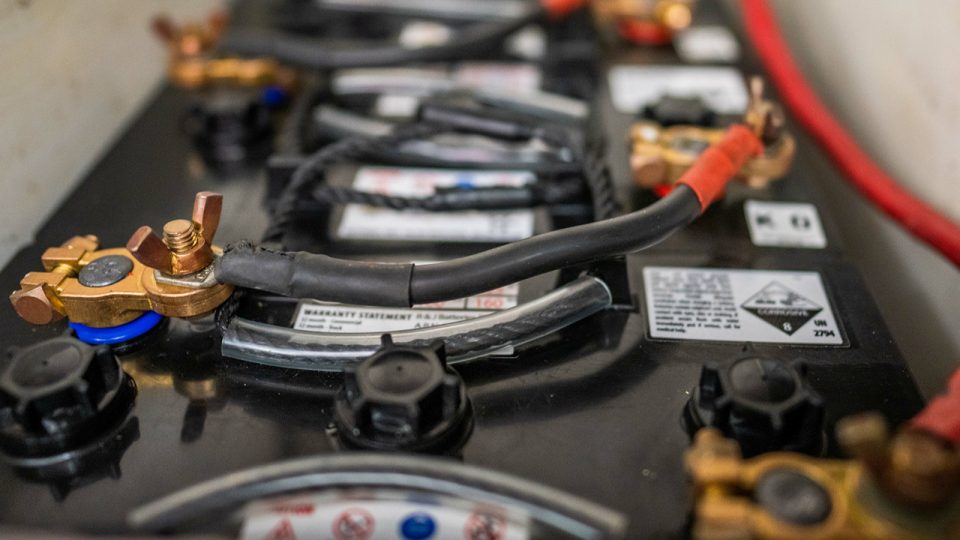Powering Your Yacht: A Comparison of Lithium Batteries and Lead Acid Batteries
Introduction: In the realm of yachting, where innovation and technology intersect with the timeless allure of the open sea, the choice of batteries can have a significant impact on the performance and efficiency of your vessel. Two popular options for marine batteries are lithium batteries and lead acid batteries, each offering unique advantages and considerations. Join us as we compare these two types of batteries, exploring their differences in terms of performance, lifespan, maintenance, and overall suitability for yachts.
- Performance:Lithium Batteries:
- Lithium batteries are known for their superior performance, offering higher energy density and a greater depth of discharge compared to lead acid batteries.
- They provide consistent power output throughout their discharge cycle, making them ideal for high-demand applications such as propulsion systems, air conditioning, and onboard electronics.
- Lithium batteries also have a faster charge rate and can be recharged to full capacity more quickly than lead acid batteries, allowing for shorter charging times and increased uptime on the water.
Lead Acid Batteries:
- Lead acid batteries have been a staple in marine applications for decades, offering reliable performance at a lower initial cost compared to lithium batteries.
- While lead acid batteries have lower energy density and a shallower depth of discharge than lithium batteries, they are well-suited for low to moderate power requirements, such as lighting, pumps, and basic electronics.
- However, lead acid batteries may experience voltage sag and reduced performance as they discharge, leading to decreased efficiency and potential limitations in power delivery.
- Lifespan:Lithium Batteries:
- Lithium batteries typically have a longer lifespan than lead acid batteries, with a greater number of charge cycles and minimal degradation over time.
- They are designed to withstand frequent cycling and partial charging without significantly impacting their overall performance or longevity.
- While lithium batteries may have a higher upfront cost, their extended lifespan and reduced maintenance requirements can result in long-term cost savings for yacht owners.
Lead Acid Batteries:
- Lead acid batteries have a shorter lifespan compared to lithium batteries, with a limited number of charge cycles and gradual capacity loss over time.
- They are more susceptible to sulfation, stratification, and other forms of degradation, especially if not properly maintained or operated within optimal parameters.
- Regular maintenance, such as equalization charging and electrolyte checks, is necessary to maximize the lifespan and performance of lead acid batteries, adding to their overall cost of ownership.
- Maintenance:Lithium Batteries:
- Lithium batteries require minimal maintenance compared to lead acid batteries, as they do not require watering, equalization charging, or regular electrolyte checks.
- They are sealed and maintenance-free, with built-in battery management systems (BMS) that monitor and protect against overcharging, overdischarging, and temperature extremes.
- While periodic cell balancing and firmware updates may be recommended for lithium batteries, routine maintenance is generally less intensive and time-consuming than with lead acid batteries.
Lead Acid Batteries:
- Lead acid batteries require regular maintenance to ensure optimal performance and longevity, including periodic watering, equalization charging, and specific gravity measurements.
- Watering intervals may vary depending on usage and ambient conditions, requiring diligent monitoring and replenishment of electrolyte levels to prevent dry cells and sulfation.
- Lead acid batteries also require proper ventilation and temperature control to prevent overheating and extend their service life, adding to the complexity and cost of maintenance for yacht owners.
In the debate between lithium batteries and lead acid batteries for yachts, the choice ultimately depends on your specific requirements, budget, and preferences. While lithium batteries offer superior performance, longevity, and ease of maintenance, they come with a higher upfront cost. Lead acid batteries, on the other hand, provide reliable performance at a lower initial investment but require more frequent maintenance and may have a shorter lifespan.
Ultimately, the decision should be based on a careful assessment of your yacht’s power needs, usage patterns, and long-term objectives. By weighing the pros and cons of each battery type and consulting with experts in marine electrical systems, you can make an informed decision that enhances the efficiency, reliability, and enjoyment of your yachting experience.

